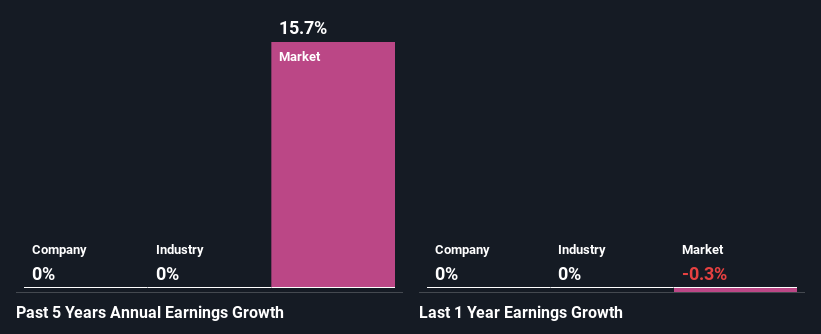Duxton Water Limited's (ASX:D2O) Stock Has Seen Strong Momentum: Does That Call For Deeper Study Of Its Financial Prospects?
Duxton Water's (ASX:D2O) stock is up by a considerable 12% over the past three months. We wonder if and what role the company's financials play in that price change as a company's long-term fundamentals usually dictate market outcomes. Particularly, we will be paying attention to Duxton Water's ROE today.
ROE or return on equity is a useful tool to assess how effectively a company can generate returns on the investment it received from its shareholders. Simply put, it is used to assess the profitability of a company in relation to its equity capital.
See our latest analysis for Duxton Water
How To Calculate Return On Equity?
ROE can be calculated by using the formula:
Return on Equity = Net Profit (from continuing operations) ÷ Shareholders' Equity
So, based on the above formula, the ROE for Duxton Water is:
5.9% = AU$8.4m ÷ AU$144m (Based on the trailing twelve months to June 2023).
The 'return' refers to a company's earnings over the last year. That means that for every A$1 worth of shareholders' equity, the company generated A$0.06 in profit.
What Is The Relationship Between ROE And Earnings Growth?
So far, we've learned that ROE is a measure of a company's profitability. We now need to evaluate how much profit the company reinvests or "retains" for future growth which then gives us an idea about the growth potential of the company. Assuming everything else remains unchanged, the higher the ROE and profit retention, the higher the growth rate of a company compared to companies that don't necessarily bear these characteristics.
A Side By Side comparison of Duxton Water's Earnings Growth And 5.9% ROE
On the face of it, Duxton Water's ROE is not much to talk about. A quick further study shows that the company's ROE doesn't compare favorably to the industry average of 9.0% either. Although, we can see that Duxton Water saw a modest net income growth of 15% over the past five years. So, there might be other aspects that are positively influencing the company's earnings growth. Such as - high earnings retention or an efficient management in place.
We then compared Duxton Water's net income growth with the industry and we're pleased to see that the company's growth figure is higher when compared with the industry which has a growth rate of 4.0% in the same 5-year period.
Earnings growth is an important metric to consider when valuing a stock. It’s important for an investor to know whether the market has priced in the company's expected earnings growth (or decline). This then helps them determine if the stock is placed for a bright or bleak future. Has the market priced in the future outlook for D2O? You can find out in our latest intrinsic value infographic research report
Is Duxton Water Using Its Retained Earnings Effectively?
The high three-year median payout ratio of 80% (or a retention ratio of 20%) for Duxton Water suggests that the company's growth wasn't really hampered despite it returning most of its income to its shareholders.
Moreover, Duxton Water is determined to keep sharing its profits with shareholders which we infer from its long history of six years of paying a dividend.
Conclusion
In total, it does look like Duxton Water has some positive aspects to its business. While no doubt its earnings growth is pretty substantial, we do feel that the reinvestment rate is pretty low, meaning, the earnings growth number could have been significantly higher had the company been retaining more of its profits. Up till now, we've only made a short study of the company's growth data. So it may be worth checking this free detailed graph of Duxton Water's past earnings, as well as revenue and cash flows to get a deeper insight into the company's performance.
Have feedback on this article? Concerned about the content? Get in touch with us directly. Alternatively, email editorial-team (at) simplywallst.com.
This article by Simply Wall St is general in nature. We provide commentary based on historical data and analyst forecasts only using an unbiased methodology and our articles are not intended to be financial advice. It does not constitute a recommendation to buy or sell any stock, and does not take account of your objectives, or your financial situation. We aim to bring you long-term focused analysis driven by fundamental data. Note that our analysis may not factor in the latest price-sensitive company announcements or qualitative material. Simply Wall St has no position in any stocks mentioned.

